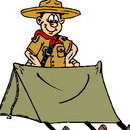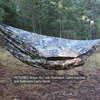Summer Camp
All about planning and going to Summer Camp
816 topics in this forum
-
- 1 reply
- 1.7k views
-
- 7 replies
- 2.9k views
-
- 1 reply
- 2.8k views
-
- 258 replies
- 61k views
-
- 0 replies
- 1.3k views
-
- 13 replies
- 3.6k views
-
- 10 replies
- 2.9k views
-
- 15 replies
- 4.9k views
-
- 15 replies
- 4.4k views
-
- 5 replies
- 2.4k views
-
- 4 replies
- 2.5k views
-
- 17 replies
- 5.1k views
-
- 4 replies
- 3.7k views
-
- 13 replies
- 4.1k views
-
- 1 reply
- 1.9k views











